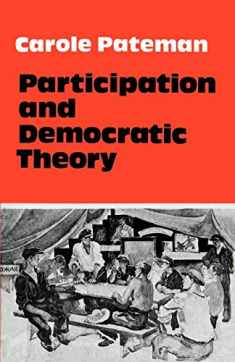
Strong Democracy: Participatory Politics for a New Age
Book details
Summary
Description
Since its appearance twenty years ago, Benjamin R. Barber's Strong Democracy has been one of the primary standards against which political science thinking and writing is measured. Defined as the participation of all of the people in at least some aspects of self-government at least some of the time, Strong Democracy offers liberal society a new way of thinking about and of practicing democracy. Contrary to the commonly held view that an excess of democracy can undo liberal institutions, Barber argues that an excess of liberalism has undermined our democratic institutions and brought about the set of crises we still find ourselves struggling against: cynicism about voting, alienation, privatization, and the growing paralysis of public institutions. In a new preface Barber looks at the past twenty years and restates his argument, which seems, sadly, more pressing than ever.


We would LOVE it if you could help us and other readers by reviewing the book
Book review





